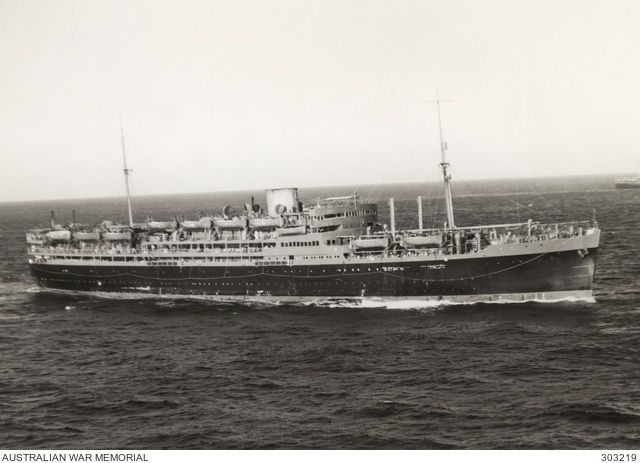Film special effects magician
- Joanne Tapiolas
- Jun 17, 2025
- 4 min read
Filippo Guidobaldi was born in Citta di Castedo (Perugia) Italy on the 25th December 1889. He lived with his wife Maria at 13 Randall Avenue Neasden, London, England and worked as a cine technician when he was arrested on the 11th June 1940. Filippo also went by the name of Guido and Philippe.
After the sinking of the Arandora Star, Filippo Guidobaldi found himself afloat drifting with the oil, bodies and other debris from the ship. He held onto debris until someone died in a lifeboat and he was hauled into it. During those lonely hours, he had a vision of the Madonna. He would craft his vision as a sculpture.
Guidobaldi was a technical expert for the film industry specialising in miniature models and specialist effects. He was also a specialist in crafting carnival floats in Nice. He joined British International Pictures in 1928 and worked at Gaumont British Studios in Shepherd’s Bush London. He was also reputed to have put the lady who grew spiders for their cobwebs out of business when he invented and patented a mechanical cobweb device. He worked on High Treason (1929); Alfred Hitchcock’s The 39 Steps (1935), Romeo and Juliet (1954) and Christopher Columbus (1949). One of his first movies after internment was Love Story (1944). He was recognised as the ‘prince of deceivers’ and a ‘modern magician’.
The chapel at Tatura Camp 2B was Filippo’s domain as was his workshop in Hut 8. Filippo worked on creating a chapel inside one of the barracks complete with altar and decorative panels. Giovanni Berni was noted as being a Chapel Warden and worked with Filippo in the chapel. Gino Guarnieri fondly remembered Filippo who fashioned a beautiful chapel inside a barracks which had an altar and candelabras. For Christmas 1940, Filippo prepared for Christmas with the construction of a beautiful crib displaying the scene of the nativity. He had made the figures with clay and the backdrop was a night scene with a sky full of stars. Christmas Day 1940 was also Filippo’s 51st birthday.
While in Tatura Camp, he painted scenes of the camp which he took home to England with him. These scenes illustrated the camp gardens, buildings, tents and Australian flora. Filippo was also involved in set construction and design for theatre productions directed by Giovanni Baldelli. Additionally, Gino Guarnieri was tutored by Filippo to make the wooden bowls for the older men to use. In his workshop, Filippo made carpentry tools such as rasps and chisels from scrap metal and he taught Gino to transform blocks of wood cut from disposal beams into rough spheres. A jam tin was substituted for a vice and slowly bowls emerged from the wood.
Filippo devised a unique method of concealment for alcohol. His grandson David explained: Like all of the prisoners they made their own alcohol, and the hard part was where to store it, as well as the illegal still. Once again, Guido came to the rescue. I remember as a child, he said to me, ‘Where do you hide a tree?’ Answer, ‘In a forest’. And that’s just what he did. There were two tree stumps outside his hut and Guido decided to create a floral display in the tops of both. However, the fake tray of plants hid a hollowed out cavity, and that is where he hid the contraband. A special effects magician for film, Filippo deftly adapted his skills for his new environment.
In Loveday Camp in 1942, Filippo continued to make wine which he stored in his work tent where he was making items for the church. Gino Guarnieri and Vittorio Tolaini remembered how Captain ‘Patchy’ of the Australian Guard received intelligence about the wine. The captain ordered Filippo out of the tent and posted a guard at the entrance and ordered another guard to fetch a wheelbarrow to cart the wine away. Always in for a lark Nicola Cua, Luigi Beschizza and Vittorio Tolaini took matters into their own hands. Tolaini wrote: ‘we decided to salvage the drink. Luigi slashed the rear of the tent and passed the bottles out to me. In turn, I passed them to Nicky and others who were standing by, to run and hide them elsewhere… when the guard returned with the wheelbarrow, Captain Patchy, with a dramatic gesture, shouted to the guard – “Take those f…ing bottles out of the tent and wheel them outside.” The soldier opened the flaps of the tent and finding it empty, said – “What bottles, Sir? The tent is empty.” A roar of rage surged from the captain as he saw the laughing prisoners standing by…He marched away stiffly, swearing revenge.’ This incident was to be alluded to on the 1942 Easter Menu card.
Filippo’s permission to return to the UK to appear before the Italian Advisory Committee was granted when Filippo was in Loveday Camp 10. He departed Loveday Camp on the 29th June 1942 and returned to Tatura Camp via Broadmeadows Military Camp on the 9th July 1942. Filippo departed Tatura Camp on the 17th July 1942 with 16 other UK Italian internees. They embarked the SS Themistocles in Sydney and disembarked in Liverpool, England on the 17th October 1942. A notation on his British document RA M/L 21.12.42 ex Australia implied he was released from internment to the Ministry of Labour on the 21st December 1942.
Filippo died on the 2nd April 1959.




Comments